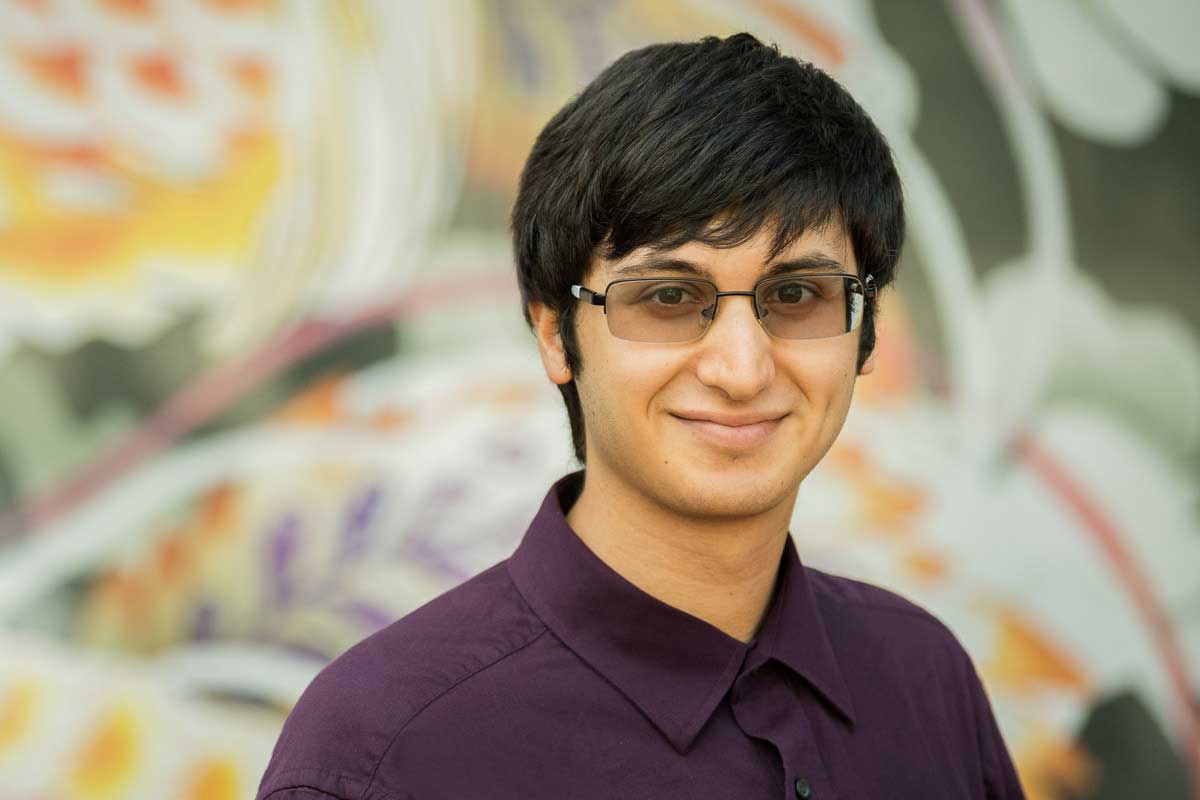Josh Aaron Miller
(he/him/his)
PhD Student

Education
- BA in Computer Science and Neuroscience, Colgate University
Biography
Josh Miller is a PhD student studying game-user interaction and games with a purpose at Northeastern University’s Khoury College of Computer Sciences, mentored by Professors Seth Cooper and Magy Seif El-Nasr. Josh's research focuses on synthesizing game design principles with the psychology of learning and motivation to create seamless and engaging user experiences in non-game contexts. He is interested in creating playful, flow-state experiences for educational contexts. Josh earned his bachelor’s degree in computer science and neuroscience from Colgate University in New York.
About Me
- Hometown: Hamilton, New Jersey
- Field of Study: Game user research, Games with a purpose
- PhD Advisors: Magy Seif El-Nasr and Seth Cooper
What are the specifics of your graduate education (thus far)?
My thesis topic is Identifying Problems in Onboarding Design for Expertise-Centric Citizen Science Games.
In the expertise-centric citizen science game (ECCSG) model of scientific research, researchers develop a game which enables citizen scientists to gain a complementary domain expertise that contributes new knowledge to the domain. However, the effectiveness of this model is reliant on the onboarding experience for training and retaining players. Yet, there are few leads on what most needs improving within the onboarding of citizen science games. Therefore, the purpose of my thesis is to discover what areas of design can be most improved in the onboarding of ECCSGs through a design science approach. The driving research questions are: (1) How is ECCSG onboarding currently designed and perceived? (2) What design changes are practically effective in improving ECCSG onboarding? To answer these questions, I am using a combination of Games User Research techniques such as surveys, interviews, and cognitive task analysis, in addition to "close play" and thematic analysis, in order to build a model of how players perceive and experience the tutorial and the skills they learn from it, extending previous research on player modeling and skill chains. Finally, I will be implementing this work into Foldit in order to improve training and engagement for citizen-designed protein structures.
What are your research interests?
I am interested in game-user interaction, games with a purpose, game design, and the psychology of learning and motivation. Together, these interests become the discovery of playful elements of non-game contexts. I also focus on minimizing cognitive load while maximizing engagement and retention, by synthesizing grounded theories and industry practices and principles.
What’s one problem you’d like to solve with your research/work?
Using games as a tool for formal and informal learning is currently an unsolved problem. How do learning and play relate? What is the core experience of discovering new things, and can we build a game or interface around that to enable players to explore new topics in an enjoyable and casual way? This work could unlock new questions into how we understand education, intrinsic motivation, play-ability, and playfulness.
What aspect of what you do is most interesting?
Games are one of the newest forms of art, and one of the only forms that are interactive. They are so nascent that no one has realized their full potential as a set of tools which enable problem-solving and human expression from a unique perspective. Truly, this field is the research of playful problem-solving, and it is so enjoyable to be a part of it.
What are your research or career goals, going forward?
I'm currently looking toward the design of transformational games: making games which are both transformational in their own right and help advance the theory of designing good transformational games.
Recent Publications
-
A Design Framework for Reflective Play
Citation: Josh Aaron Miller, Kutub Gandhi, Matthew Alexander Whitby, Mehmet Kosa, Seth Cooper, Elisa D. Mekler, Ioanna Iacovides. (2024). A Design Framework for Reflective Play CHI, 519:1-519:21. https://doi.org/10.1145/3613904.3642455 -
Introducing Foldit Education Mode
Citation: Miller, J.A., Khatib, F., Hammond, H. et al. Introducing Foldit Education Mode. Nat Struct Mol Biol 27, 769–770 (2020). https://doi.org/10.1038/s41594-020-0485-6 -
Large-Scale Analysis of Visualization Options in a Citizen Science Game
Citation: Josh Aaron Miller, Vivian Lee, Seth Cooper, and Magy Seif El-Nasr. 2019. Large-Scale Analysis of Visualization Options in a Citizen Science Game. In Extended Abstracts of the Annual Symposium on Computer-Human Interaction in Play Companion Extended Abstracts (CHI PLAY '19 Extended Abstracts). Association for Computing Machinery, New York, NY, USA, 535–542. DOI:https://doi.org/10.1145/3341215.3356274

